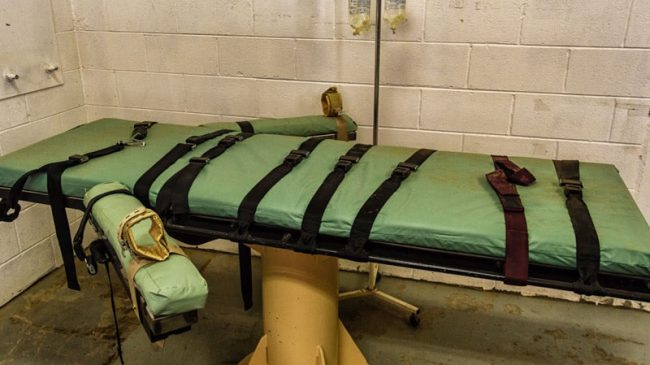One of the ballot initiatives Californians passed on Tuesday promises to pose a number of unfortunate problems for the state in the coming years: Proposition 66. This measure, which was marketed as a “fix” to California’s death penalty, will only further entrench problems that exist with an inherently broken system.
After Prop. 66’s passage, all post-conviction proceedings in death penalty cases will now be moved from the California Supreme Court to state trial courts, which are the same courts that handed down the death sentences originally. State trial courts, which have no experience reviewing these appeals, are also now tasked with appointing lawyers – many of whom have never worked on a death penalty case – to handle the flood of petitions.
Under the law, too, the amount of time lawyers will be allowed to investigate and file habeas petitions in death penalty appeals is shortened from three years to just one year unless there is a “substantial claim of actual innocence,” which would extend the deadline to two years.
One of the main problems with the death penalty in California isn’t that it’s not speedy enough, but rather there aren’t enough lawyers for inmates on death row. According to a 2008 report published by the California Commission on the Fair Administration of Justice, the lack of legal representation for death row inmates – many of whom are indigent and wait years just to get state-appointed lawyers assigned to their cases – is what has made California’s death penalty system so broken.
“To reduce the average lapse of time from sentence to execution by half,” the report said, “[California] will have to spend nearly twice what we are spending now.” This ballot initiative did not address the added costs that will inevitably come from trying to speed up the process.
Already, the death penalty is expensive for California. According to the same report, the state spends roughly $137 million a year on the death penalty alone. California has spent over $5 billion to maintain the death penalty since it was reinstated in 1978, despite only a handful of executions having been carried out (the last of which was over a decade ago).
Prop. 66 requires California to expand the number of lawyers eligible to represent death row inmates, which will increase costs by at least $95 million per year. Extra court costs will also have to be taken out of taxpayers’ pockets.
The biggest worry is that all of this speeding up of the process, compounded by the fact that many lawyers appointed to these petitions will have little to no experience handling death penalty cases, increases the chances that an innocent person may be executed by the state.
Indeed, as the unfolding scandal at the Orange County District Attorney’s office is showing us, “snitch” tactics have been used by prosecutors in ways that may have led to wrongful convictions.
Beyond this, there are also growing concerns over just how the state plans to obtain any lethal injection drugs to actually carry out executions. Already, the California Department of Corrections has amended its lethal injection protocol to allow the state to obtain one of four barbiturates from a licensed pharmacy to carry out an execution. However, many states that still have capital punishment on the books have faced a years-long shortage of FDA approved execution drugs.
And there are pending lawsuits over challenges of the new or experimental drug protocols other states have adopted or used.
Voters may have thought that this initiative would deliver justice for families and victims of the horrendous crimes that put people on death row. Unfortunately, it will instead highlight just how broken the system is at the expense of victims, the accused and taxpayers alike. And if the state is able to carry out an execution under this new law we’ll have to hope voters’ desire to expedite the process doesn’t end in the state killing an innocent person.
Lauren Krisai is director of criminal justice reform at Reason Foundation.

